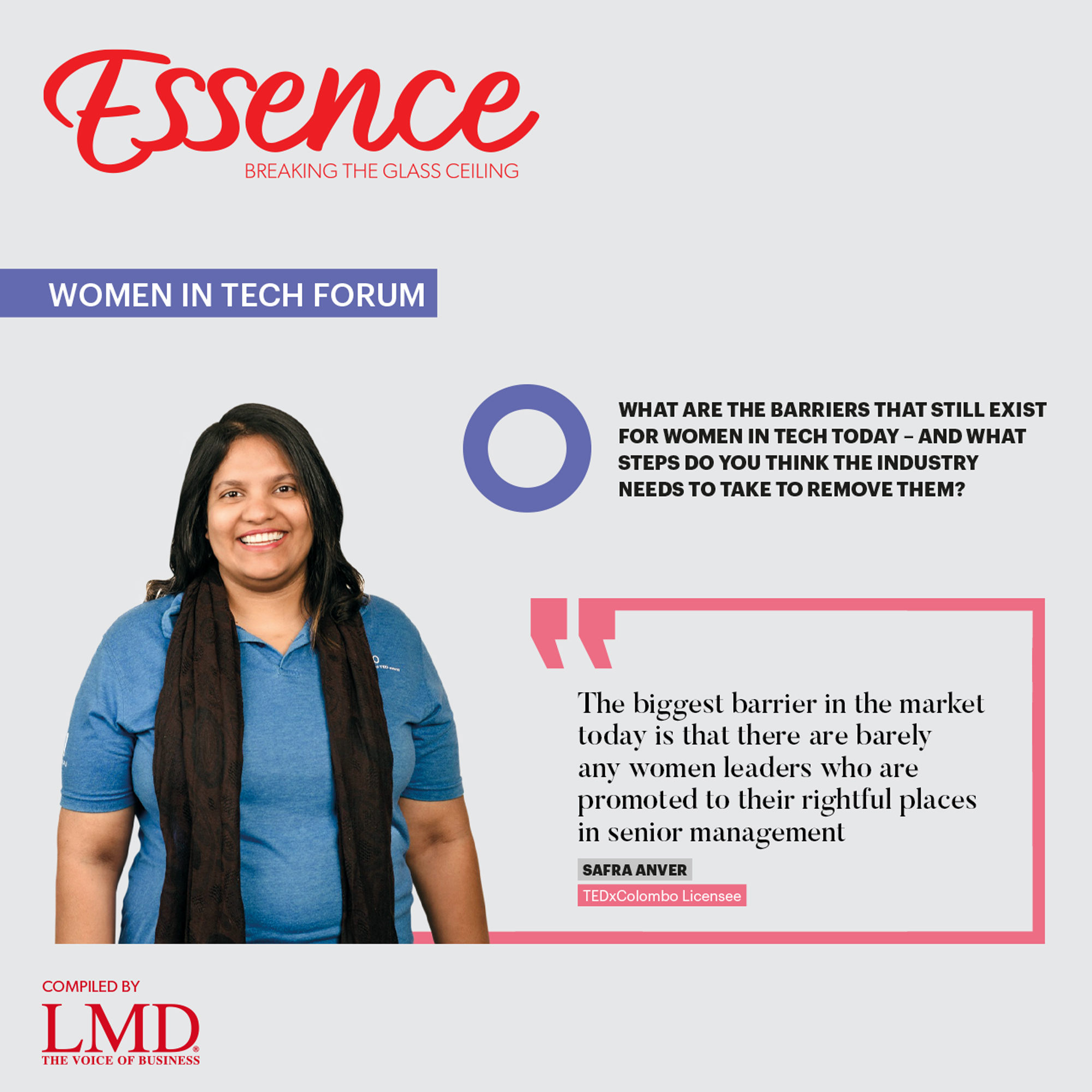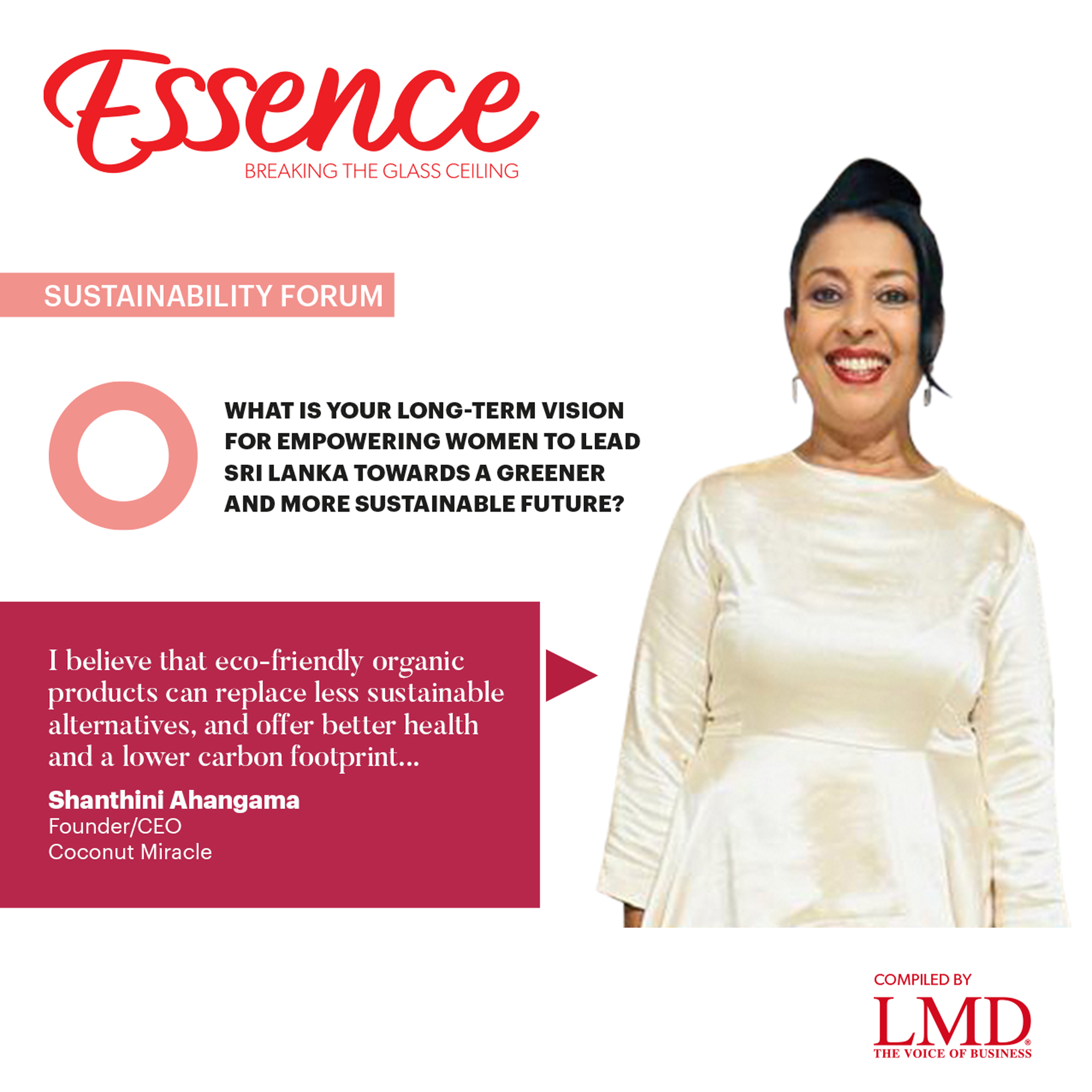ATTITUDE
A MATTER OF MINDSET
Rohini Nanayakkara believes that women can unleash their full potential with the right attitude
 When Rohini Nanayakkara joined the Bank of Ceylon (BOC) in April 1959, she was the first female executive to work in a commercial bank. Naturally, she motivated thousands of women to follow in her inspiring footsteps.
When Rohini Nanayakkara joined the Bank of Ceylon (BOC) in April 1959, she was the first female executive to work in a commercial bank. Naturally, she motivated thousands of women to follow in her inspiring footsteps.
This pioneering streak continued throughout her career: she became the first female General Manager and CEO of a bank in Sri Lanka and the Asian region; and subsequent to her retirement from BOC, Nanayakkara headed Seylan Bank and then LOLC Group as chairperson.
She believes that being open-minded and treating everyone with dignity is key to achieving gender equality. Apart from biological differences, men and women can achieve the same as any talented individual, she notes.
“From my younger days in school and then university, I was never led to think of males and females as different beings. This non discriminative mindset helped me throughout my career,” she reminisces.
Nanayakkara emphasises that “woman or man, you have a role to play in life; and you have to be confident that you can fulfil this purpose. In ancient days, functions and responsibilities were segregated by gender, and women were disadvantaged.”
She continues: “Today however, thanks to progressive thinking, technological advancements and the modern environment we live in, women are empowered. They have proven their ability to overcome challenges, shatter barriers and progress – in education, sports, business and leadership; basically in every sphere of life.”
Boardroom compositions are changing but Nanayakkara – who sits on several boards of directors of Sri Lanka’s leading organisations – notes that “there is much to be done in this sphere. We live in a male dominated cultural setting and generally see more men holding top management positions… there is no balance in the boardroom when it comes to male and female representation.”
The narrator of ‘What Glass Ceiling? The Memoirs of Rohini Nanayakkara’ refuses to accept that there’s a glass ceiling. She avers: “If there’s a barrier, it is because we have built it. Sometimes as ladies, we limit ourselves by not taking up opportunities.”
“We can and should assume responsibilities, and perform in a manner that ensures we’re not discriminated against. I believe that a woman can carry out any job as well as a man; we have to show that we’re equal and our restrictions as women should be managed by us. When you’re a female leader, it is imperative that you develop traits that help master your own progress,” she urges.
The first female GM and CEO of Sri Lanka’s banking sector explains this by citing her own experience: “Decision making is a critical area to foster, more so when you’re a woman. You have to be decisive and fair in your judgements, and be able to work and interact with anyone – and most importantly, nurture and display sincerity of purpose for you to be accepted.”
“It should not be about doing a job merely to earn an income but being honest to your job, so that your colleagues and employees know that you’re committed and dependable. When you’re leading people, you have to be prepared to go the extra mile for the sake of the organisation and your workforce,” she adds.
Nanayakkara acknowledges that women take on the lion’s share of family and household responsibilities. That said, she encourages females to find solutions and mechanisms so that achieving their full potential is unhindered.
“Women do face challenges when it comes to marriage and having children,” she remarks, highlighting the fact that having a helpful spouse and robust support system is vital for female professionals. “You must organise your household and build a support system to manage your work-life balance,” she posits.
The former Chairperson of Seylan Bank and LOLC Group is optimistic that women will continue to succeed more and more across many fields, including typically male dominated spheres such as science, technology, engineering and mathematics (STEM), and entrepreneurship.
Nanayakkara notes that females who yearn to start their own businesses must be encouraged and fully supported to fulfil their potential.
“These women must be provided with the necessary knowledge and facilities, as well as guidance. This will enable them to fuel their desires and determination to overcome challenges. If they have the urge to succeed and the right work ethic, we must help them develop themselves,” she concludes.
“You must organise your household and build a support system to manage your work-life balance





